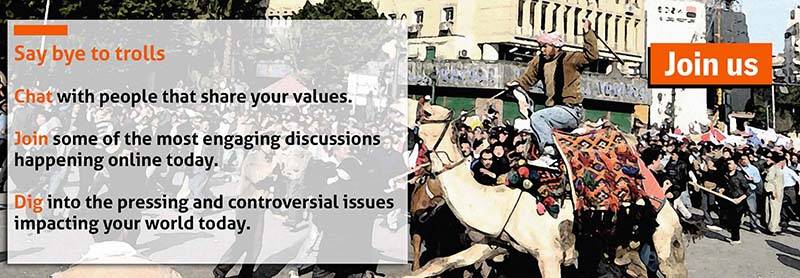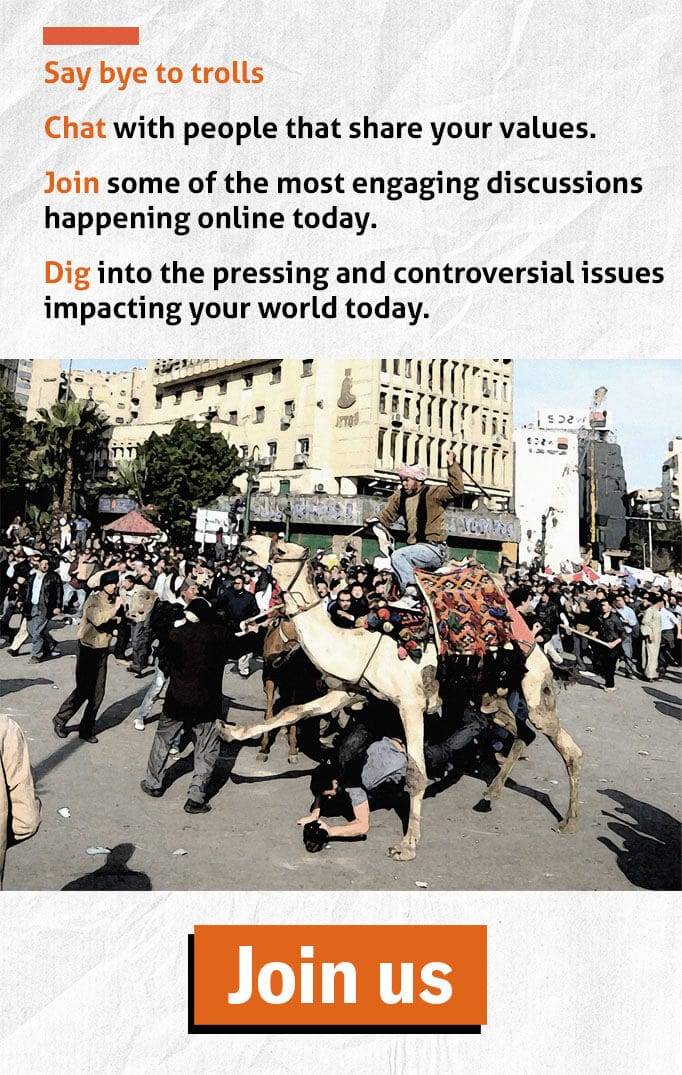According to human rights organizations, 92 journalists are jailed in Egypt for anything from political cases, to simply doing their job. Raseef22 heard testimonials of some of their family members talking about life inside the Egyptian jails, a life they describe as defined by torture, humiliation, and lack of medical treatment.
Al Aqrab prison: a graveyard for the living
Iman Mahrous is the wife of journalist Ahmed Sabi currently in Aqrab prison. She says that her husband is in one of the H2 cells, usually reserved for Muslim Brotherhood members. It is very small and solitary, lacking aeration except for a little opening in the door, which is mostly closed. There is no sun or air that comes into the cell. Al Aqrab is an infamous prison in Egypt, it is known as a graveyard for the living. Sabi who was the head of the Cairo office of Al Aqsa TV, has been in jail since the 4th of October, 2013. He is accused along with others of running an operation room with figures from the Muslim Brotherhood responsible for the torture and killing of protesters during the massacre of Rabi’a Al Adawiya.
 Ahmed Sabi[/caption]
Ahmed Sabi[/caption]
Iman describes the conditions in the prison: “Ahmed sleeps on a concrete platform inside a 2 by 1.5 meter cell, it stinks and is full of insects. There is no aeration and inside the cell there is a squat toilet. He is only allowed to go out to the hallway, right in front of the cell, for a few minutes. And as opposed to other prisons, he is to remain in his cell during holidays.”
She explains that her husband has many health problems, especially breathing problems and ulcers, but no one cares. She only sees him rarely, a few minutes every month, despite the fact that the prison allows a visit per month for those who are not yet sentenced, and a visit every 15 days for those who are. If one is sentenced to death, they get one visit per month. She adds: “On the days of visitation, we leave the house at 3am, arrive to the main entrance to the prison at 4am and stand in a very long line until 6am. Then you are allowed to take the internal transportation inside the prison, and I get to my husband at 9am so that I can see him from behind a protective glass for 2 or 3 minutes.”
 13043664_496689570515119_20876432991636676_n
13043664_496689570515119_20876432991636676_n
Visitation news bulletin
Aya Ala’, the wife of the journalist Hassan Al-Qabbani, says that her husband is in solitary confinement, in a cell with a squat toilet, and a blanket. He is not allowed to keep any personal items, though he was allowed to have a toothbrush and underwear before, but no longer.
Al-Qabbani was arrested from his house on the evening of January 22, 2015. He was a journalist in the Al Karama newspaper, specialized in legal issues, and member of the press syndicate.
[caption id="attachment_67931" align="alignright" width="230"] Hassan Al Qabbani[/caption]
Hassan Al Qabbani[/caption]
“Breakfast starts at 9am”, she explains, “whether it is prison food, bread with beans and cheese, or food from the canteen. Then it is time for exercising that lasts for 3 hours in the sun in front of the hallways if the prison administration is happy with the prisoners. Then the doors to the cells close by 4pm.”
Ala’ says that the visit of the national committee for human rights last march made a difference. The prison administration allowed toothbrushes and blankets in winter for prisoners, but they were confiscated after that. She points out that often prisoners would stand next to the cell doors and talk to each other loudly about news outside. This meeting is called the “visitation news bulletin”, other times they would be busy reading the Quran or reciting poetry.
Open heart
Omnia Magdi does not withhold her tears when talking about journalist Omar Abdel Maksoud, a photographer for Masr al Arabia website. He was arrested 15 days before his wedding: “Omar is accused of burning cars in a town in Mansoura, in one of the centers of the Qalyubia Governorate, despite the fact that there is proof that he was not there when the burning happened.” Magdi says that he is now in jail for more than 900 days along with his brothers Ibrahim and Anas (a high-school student), since April 2014. The three are now on re-trial after they had received a life sentence.
“Omar had an open heart surgery before he was arrested, and still he was tortured at the police station" she explains, "he is now in the high security Gamsa prison, suffering from inflammations in his back and shoulder because of the cold and sleeping on the floor.”
[caption id="attachment_67932" align="alignnone" width="700"] الصحفى-عمر-عبدالمقصود Omar, Ibrahim, and Anas Al Maksoud, and Abdel Moneim Metwalli[/caption]
الصحفى-عمر-عبدالمقصود Omar, Ibrahim, and Anas Al Maksoud, and Abdel Moneim Metwalli[/caption]
She explains that he is living in a 3 by 3 meter cell with a bunch of other prisoners. He tells her how he spends his time in prison. Sometimes she feels he is still motivated to live when he says that he wants to continue studying German, and wishes to study economy and political science, but other times he is depressed.
During her last visit he said that he got approval to read the Quran with another prisoner and to learn German with a teacher who is there with him. Sometimes he would collect news from newspapers allowed inside the prison, or from the radio, and he would edit and re-write the news and read it to his prison mates, as if he was a newscaster on TV or radio.
Epilepsy mediation
Mohammed Saber Al Battawi, is a journalist with Akhbar el Yom. He comes from a family of journalists, and during his arrest in 2015, his father was the vice editor in chief for the national newspaper Akhbar el Yom. He has been working in journalism for 10 years and is a member of the press syndicate.
He was arrested from his home on the 17th of July, 2015, after writing a sarcastic article criticizing the death of a number of workers in a cement factory in Al Arish. He disappeared at the headquarters of the national security in Shubra Al Kheima for 5 days. His wife Rafida Al Safti says: “we then learned that he was transfered to the Tora prison on the 21st of January, 2015 after the head of the press syndicate Yehia Qalash officially accused the ministry of interior of kidnapping him.
Al Safti describes how her husband spends his time in prison: “he is in a small cell with 7 other people and one toilet. He is not allowed to go out more than 2 hours a day on a regular day and not at all on holidays.”
[caption id="attachment_67933" align="alignnone" width="700"] محمد-صابر-البطاوي Saber Al Battawi[/caption]
محمد-صابر-البطاوي Saber Al Battawi[/caption]
She adds: “everything is banned in prison, even books and newspapers, fruits and juice, the only thing that is allowed is one homemade meal.” When a prisoner is sick the other prisoners would scream for help until someone comes, and most of the time as she explains no one does: “some people died like that; even state media says it”.
She adds: “my husband now has all kinds of skin problems and allergies on his chest. We tried with the help of the press syndicate to ask that he be allowed to see a doctor, and after a month and a half of asking, a doctor finally came, and gave him medication for epilepsy even though he does not have this condition.” Her husband has been in prison for 480 days without any crime, as if the state is punishing him for simply being a journalist.
Cancer is easier than Al Aqrab prison
Dr. Manar Tantawi, wife of journalist Hisham Jaafar, managing editor of Mada Foundation for Media Development, says that her husband was arrested on the 21st of October, 2015, because of empty accusations as she describes them. The security forces invaded Mada’s offices and he was taken and disappeared for 48 hours. She adds: “we got to know that my husband’s health was deteriorating quickly and everyone saw that, especially that he has prostate problems and other issues with his optical nerve”.
After the previous head of the press syndicate intervened with help from the current board, he was transferred to the Kasr Al Aini hospital. At the hospital prisoners quarter he received treatment for a month, then was returned with false reports to Tora prison, despite the fact that a surgery was scheduled three times but was never performed.
[caption id="attachment_67934" align="alignleft" width="234"] Hisham Jaafar[/caption]
Hisham Jaafar[/caption]
Tantawi, explains that her husband appeared in front of a judge the next day holding a urine catheter in his hand, which clearly showed that his life was in danger, his body was weak and he had become alarmingly underweight. She adds: “we had to take a closer look and examine whether the prostate swelling was benign or not, but to no avail, after he was transferred to the prisoner quarter in the hospital, he was completely neglected, and received no treatment. So he went on a hunger strike to protest the lack of treatment, but the doctor forged a report and sent him back to the prison so that he would stop his strike.” She says that she asked her husband to file a complaint, but he did not want to, saying that: “filing a compliant means I go back to Al Aqrab, I would prefer cancer over that”.
Tantawi asks: “How can journalists be killed like that while everyone is watching? My husband is now a skeleton, and still he is not allowed to get any medicine.”
The freedoms committee at the press syndicate along with other activists launched a campaign called “freedom for the pen” to raise awareness about imprisoned journalists, and to demand their release, in addition to a weekly blogging campaign that would introduce all the imprisoned journalists starting with Khaled Sahloub and Mohammed Al Battawi.
Raseef22 is a not for profit entity. Our focus is on quality journalism. Every contribution to the NasRaseef membership goes directly towards journalism production. We stand independent, not accepting corporate sponsorships, sponsored content or political funding.
Support our mission to keep Raseef22 available to all readers by clicking here!




Join the Conversation
جيسيكا ملو فالنتاين -
1 day agoجميل جدا أن تقدر كل المشاعر لأنها جميعا مهمة. شكرا على هذا المقال المشبع بالعواطف. احببت جدا خط...
Tayma Shrit -
3 days agoمدينتي التي فارقتها منذ أكثر من 10 سنين، مختلفة وغريبة جداً عمّا كانت سابقاً، للأسف.
Anonymous user -
3 days agoفوزي رياض الشاذلي: هل هناك موقع إلكتروني أو صحيفة أو مجلة في الدول العربية لا تتطرق فيها يوميا...
Anonymous user -
3 days agoاهم نتيجة للرد الايراني الذي أعلنه قبل ساعات قبل حدوثه ، والذي كان لاينوي فيه احداث أضرار...
Samah Al Jundi-Pfaff -
5 days agoأرسل لك بعضا من الألفة من مدينة ألمانية صغيرة... تابعي الكتابة ونشر الألفة
Samah Al Jundi-Pfaff -
5 days agoاللاذقية وأسرارها وقصصها .... هل من مزيد؟ بالانتظار